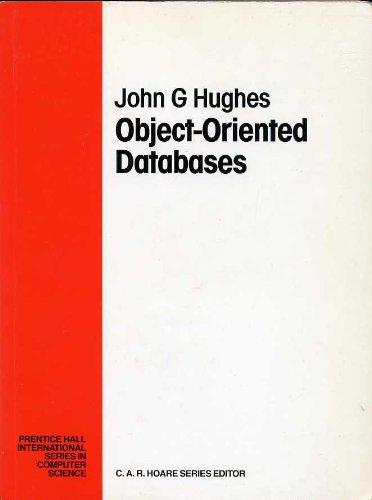Question
In C programming: Smallsh shall perform signal handling of the SIGINT and SIGTSTP signals as follows: The SIGTSTP signal shall be ignored by smallsh. The
In C programming:
Smallsh shall perform signal handling of the SIGINT and SIGTSTP signals as follows:
The SIGTSTP signal shall be ignored by smallsh.
The SIGINT signal shall be ignored (SIG_IGN) at all times except when reading a line of input in Step 1, during which time it shall be registered to a signal handler which does nothing.
Explanation:
SIGTSTP (CTRL-Z) normally causes a process to halt, which is undesirable. The smallsh process should not respond to this signal, so it sets its disposition to SIG_IGN.
The SIGINT (CTRL-C) signal normally causes a process to exit immediately, which is not desired. When delivered by a terminal, the terminal also clears the current line of input; because of this, we want to reprint the prompt for the restarted line of input. This is accomplished by registering a signal handler (which does nothing) to the SIGINT signal; when an interruptible system call (such as read()) is blocked and a signal with a custom handler arrives, the system call will fail with errno=EINTR (interrupted) after the signal handler returns. This allows us to escape the blocked read operation in order to reprint the prompt. If the disposition were set instead to SIG_IGN, the system call would not be interrupted, as with SIGTSTP above.
Here's what I have so far:
#define MAX_ARGS 512
#define MAX_LENGTH 2048
int num_background_pids = 0;
pid_t background_pids[MAX_ARGS];
int status = 0;
bool foreground_only = false;
void error(char* msg) {
fprintf(stderr, "%s ", msg);
status = 1;
}
// CTRL+C
void handle_SIGINT(int signo) {
if (!foreground_only) {
// ignore the signal for background processes
return;
}
// kill the foreground process and set status variable
if (signo == SIGINT) {
fprintf(stderr, "Terminated by signal %d ", signo);
status = 2;
}
}
// CTRL+Z
void handle_SIGTSTP(int signo) {
if (foreground_only) {
// ignore the signal for foreground processes
return;
}
// toggle foreground-only mode and print message
if (signo == SIGTSTP) {
foreground_only = !foreground_only;
if (foreground_only) {
fprintf(stderr, "Entering foreground-only mode (& is now ignored) ");
}
else {
fprintf(stderr, "Exiting foreground-only mode ");
}
}
}
pid_t get_last_background_pid() {
pid_t last_pid = 0;
int i;
for (i = 0; i < num_background_pids; i++) {
int child_status;
pid_t child_pid = waitpid(background_pids[i], &child_status, WNOHANG);
if (child_pid == background_pids[i]) {
if (WIFEXITED(child_status)) {
fprintf(stderr, "Child process %jd done. Exit status %d. ", (intmax_t) child_pid, WEXITSTATUS(child_status));
}
else if (WIFSIGNALED(child_status)) {
fprintf(stderr, "Child process %jd done. Signaled %d. ", (intmax_t) child_pid, WTERMSIG(child_status));
}
else if (WIFSTOPPED(child_status)) {
fprintf(stderr, "Child process %jd stopped. Continuing. ", (intmax_t) child_pid);
kill(child_pid, SIGCONT);
}
background_pids[i] = 0;
}
else {
last_pid = background_pids[i];
}
}
int j = 0;
for (i = 0; i < num_background_pids; i++) {
if (background_pids[i] != 0) {
background_pids[j++] = background_pids[i];
}
}
num_background_pids = j;
return last_pid;
}
int main() {
struct sigaction SIGINT_action = {0};
SIGINT_action.sa_handler = handle_SIGINT;
sigfillset(&SIGINT_action.sa_mask);
SIGINT_action.sa_flags = 0;
sigaction(SIGINT, &SIGINT_action, NULL);
struct sigaction SIGTSTP_action = {0};
SIGTSTP_action.sa_handler = handle_SIGTSTP;
sigfillset(&SIGTSTP_action.sa_mask);
SIGTSTP_action.sa_flags = 0;
sigaction(SIGTSTP, &SIGTSTP_action, NULL);
char *input = NULL;
ssize_t inputSize = 0;
char *delimiters = " \t ";
char *words[MAX_ARGS];
char *prompt = (getenv("PS1") != NULL) ? getenv("PS1") :"";
while(1) {
get_last_background_pid();//before the prompt
printf("%s", prompt);
ssize_t line_length = getline(&input, &inputSize, stdin);
bool input_redir = false, output_redir = false, background = false, comment = false;
int input_pos = -1, output_pos = -1, background_pos = -1, comment_pos = -1;
int i = 0;
words[i] = strtok(input, delimiters);
while (words[i] != NULL) {
if (strcmp(words[i], "<") == 0) {
input_redir = true;
input_pos = i;
}
else if (strcmp(words[i], ">") == 0) {
output_redir = true;
output_pos = i;
}
else if (strcmp(words[i], "&") == 0) {
background = true;
background_pos = i;
}
else if (strcmp(words[i], "#") == 0) {
comment = true;
comment_pos = i;
words[i] = NULL;
break;
}
i++;
words[i] = strtok(NULL, delimiters);
}
if (i > 0) {
if (input_redir && input_pos == i-2) {
freopen(words[i-1], "r", stdin);
words[i-2] = NULL;
}
else if (output_redir && output_pos == i-2) {
freopen(words[i-1], "w", stdout);
words[i-2] = NULL;
}
else if (input_redir && output_redir && (input_pos == i-3 || output_pos == i-3)) {
if (input_pos == i-3) {
freopen(words[i-2], "r", stdin);
words[i-3] = NULL;
}
}
else {
freopen(words[i-2], "w", stdout);
words[i-3] = NULL;
}
}
if (background && background_pos == i-1) {
words[i-1] = NULL;
pid_t pid = fork();
if (pid == 0) {
execvp(words[0], words);
error("Invalid command");
exit(1);
}
else if (pid > 0) {
background_pids[num_background_pids] = pid;
num_background_pids++;
}
else {
error("Fork failed");
}
}
else {
// run in foreground
pid_t pid = fork();
if (pid == 0) {
execvp(words[0], words);
error("Invalid command");
exit(1);
}
else if (pid > 0) {
waitpid(pid, &status, 0);
}
else {
error("Invalid command");
exit(1);
}
}
}
return 0;
}
Thank you!!
Step by Step Solution
There are 3 Steps involved in it
Step: 1

Get Instant Access to Expert-Tailored Solutions
See step-by-step solutions with expert insights and AI powered tools for academic success
Step: 2

Step: 3

Ace Your Homework with AI
Get the answers you need in no time with our AI-driven, step-by-step assistance
Get Started


